
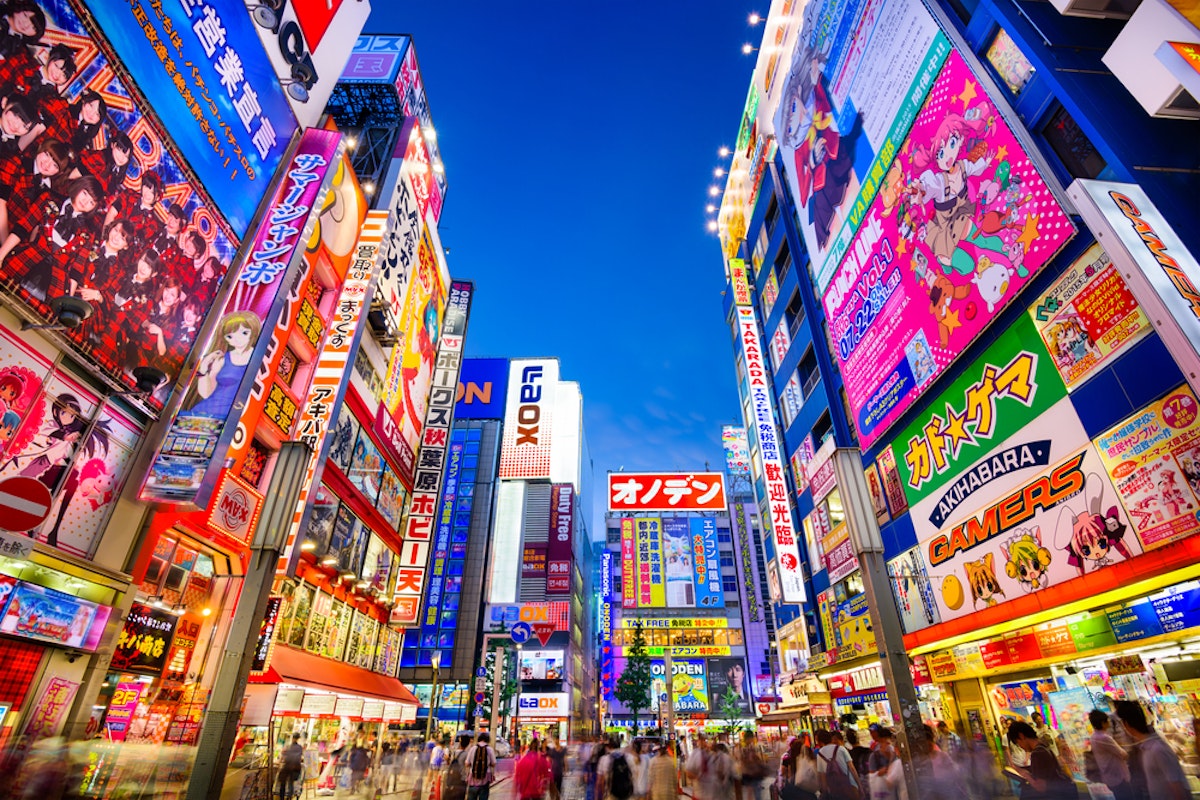
โตเกียว เมืองหลวงที่คึกคักของญี่ปุ่น เป็น จุดหมายฝันสำหรับผู้รักการช็อปปิ้ง ทั่วโลก ด้วยการผสมผสานที่แปลกประหลาดระหว่างตลาดแบบดั้งเดิม เขตแฟชั่นระดับไฮเอนด์ และร้านค้าวัฒนธรรมป๊อปที่แปลกใหม่ เมืองนี้มอบประสบการณ์การช็อปปิ้งที่ไม่มีใครเหมือนซึ่งตอบโจทย์ทุกรสนิยมและงบประมาณ
อย่างไรก็ตาม การนำทางในภูมิทัศน์การช็อปปิ้งขนาดใหญ่ของโตเกียวอาจรู้สึกท่วมท้นสำหรับผู้ที่ไม่คุ้นเคย เมืองนี้มีห้างสรรพสินค้ามากกว่า 300 แห่งและบูติกนับไม่ถ้วนกระจายอยู่ในเขตต่างๆ นอกจากนี้ ด้วยมารยาทการช็อปปิ้งที่เป็นเอกลักษณ์และความละเอียดอ่อนทางวัฒนธรรมของญี่ปุ่น จึงไม่ใช่เรื่องง่ายเสมอไปที่นักท่องเที่ยวจะหาทางได้
คู่มือนี้มีเป้าหมายเพื่อทำให้การช็อปปิ้งในโตเกียวของคุณง่ายขึ้น โดยมีข้อมูลเชิงลึก คำแนะนำ และข้อเท็จจริงที่มีค่าเพื่อช่วยให้คุณใช้ประโยชน์สูงสุดจากการผจญภัยในการค้าปลีกในดินแดนแห่งพระอาทิตย์ขึ้น
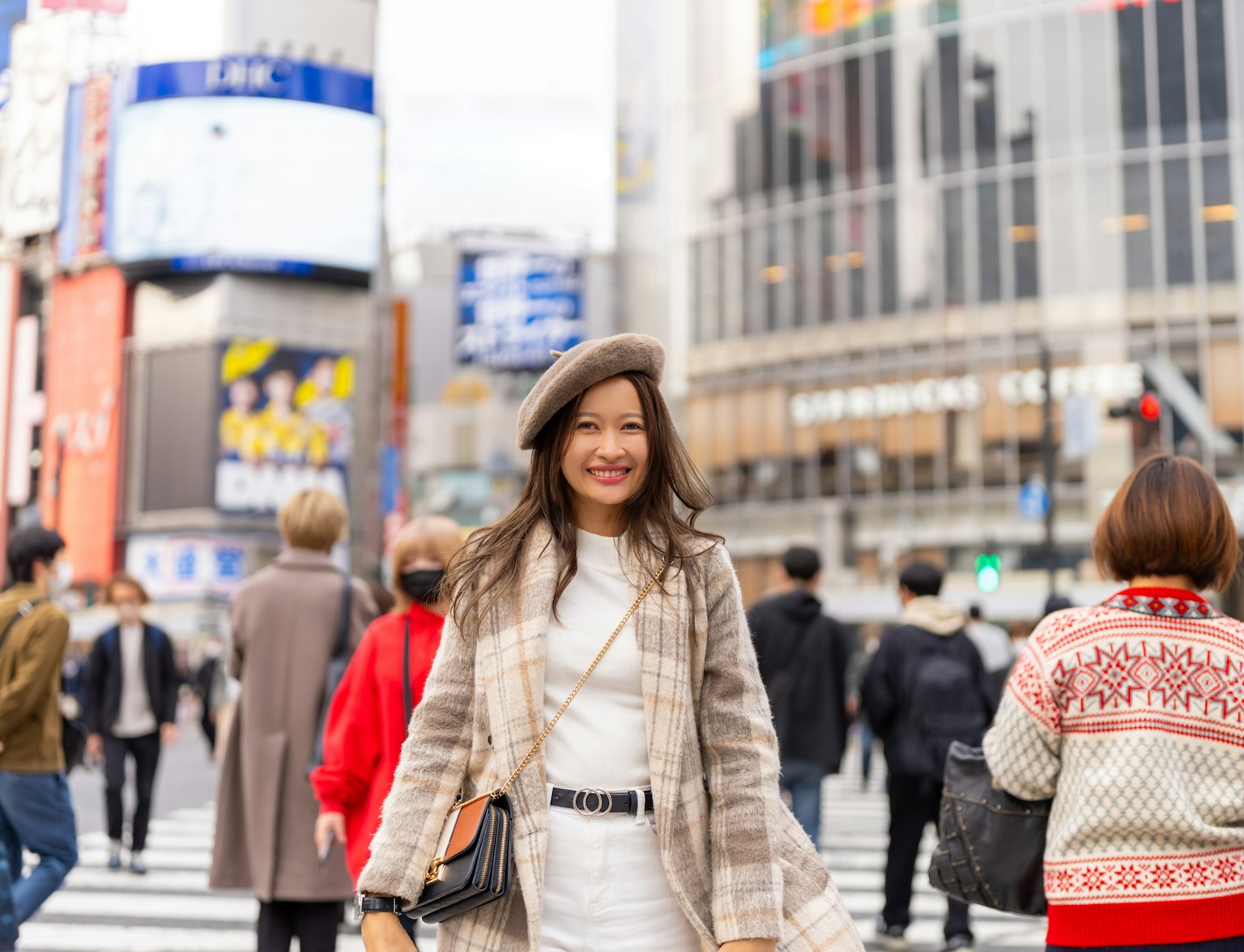
การทัวร์เป็นการเดินทางที่น่าตื่นเต้นผ่านเมืองโตเกียวที่มีเสน่ห์ ซึ่งคุณจะได้สัมผัสกับการผสมผสานที่ลงตัวระหว่างความทันสมัยและประเพณี
ฉากการช็อปปิ้งของโตเกียวมีความหลากหลายเท่ากับที่มันกว้างขวาง โดยมีประสบการณ์จำนวนมากที่ตอบสนองต่อรสนิยมและงบประมาณที่แตกต่างกัน มาสำรวจบางส่วนของเขตช็อปปิ้งที่โดดเด่นที่สุดของเมืองกันเถอะ
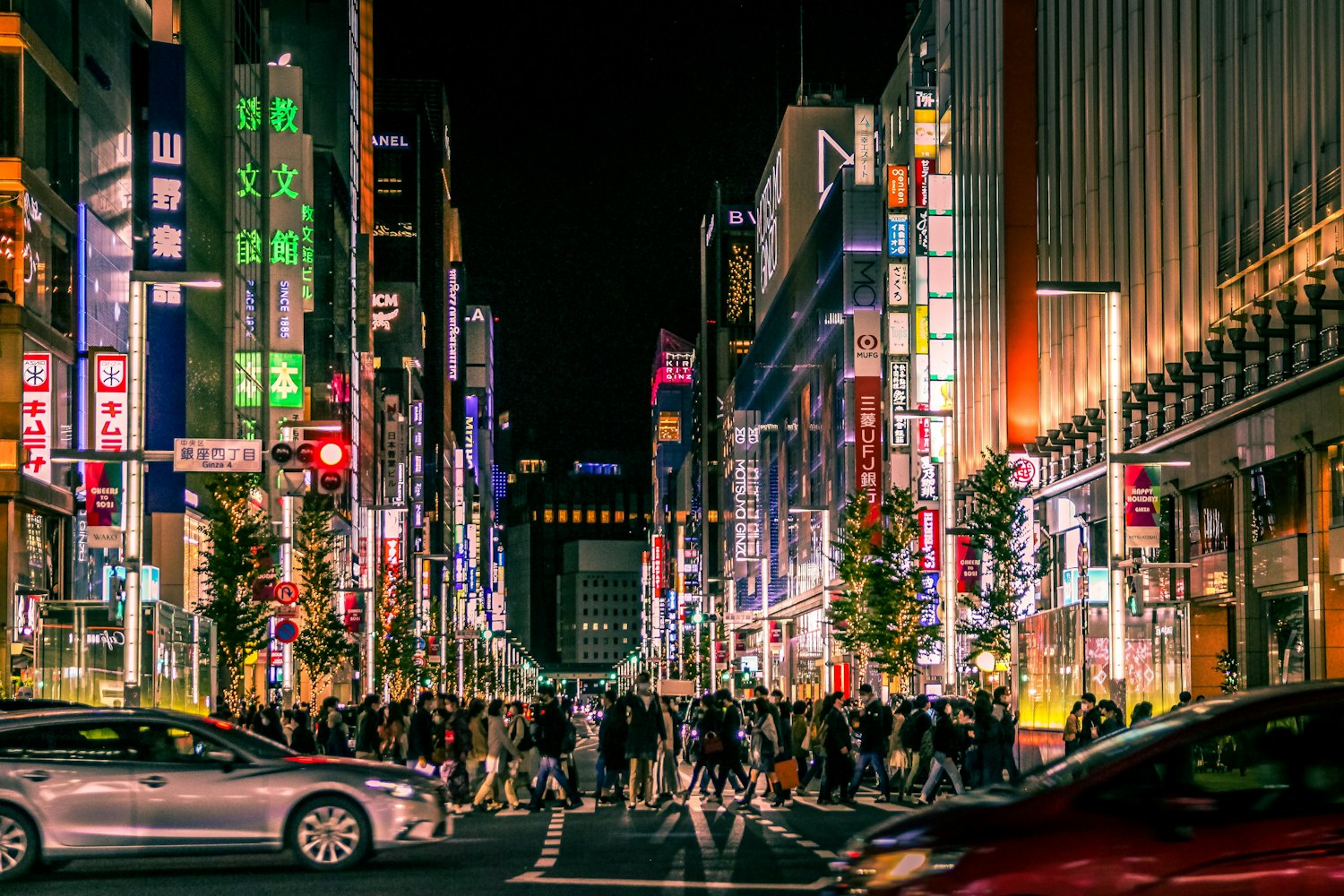
กินซ่า คือ สวรรค์แห่งการช็อปปิ้งสุดหรูของโตเกียว ที่นี่คุณจะได้พบกับร้านค้าแฟลกชิปของแบรนด์ระดับโลก เช่น ชาแนล หลุยส์ วิตตอง และกุชชี่ ซึ่งตั้งเด่นท่ามกลางสถาปัตยกรรมที่หรูหราของเขตนี้
พื้นที่นี้ยังเป็นที่ตั้งของห้างสรรพสินค้าแบบดั้งเดิมของญี่ปุ่นระดับไฮเอนด์ เช่น มิตซุโคชิ และมัตซุยะ ซึ่งเป็นที่รู้จักในเรื่องความหลากหลายของสินค้าดีไซเนอร์ เครื่องประดับ และอาหารชั้นดี ห้ามพลาดโอกาสไปสำรวจกินซ่า ซิกซ์ ซึ่งเป็นคอมเพล็กซ์หรูมีร้านค้าเกิน 240 ร้าน รวมถึงร้านบูติกดีไซเนอร์และแกลเลอรีศิลปะมากมาย
เวลาที่ดีที่สุดในการเยี่ยมชม: ตั้งแต่บ่ายถึงเย็นสำหรับการช็อปปิ้งในหน้าต่างและการรับประทานอาหาร
สถานที่น่าสนใจ:
แบรนด์ระดับสากล: ชาแนล หลุยส์ วิตตอน กุชชี่
ห้างสรรพสินค้า: มิตซุโคชิ มัตซุยะ
กินซ่า ซิกซ์: ร้านหรูมากกว่า 240 ร้านและแกลเลอรีศิลปะ
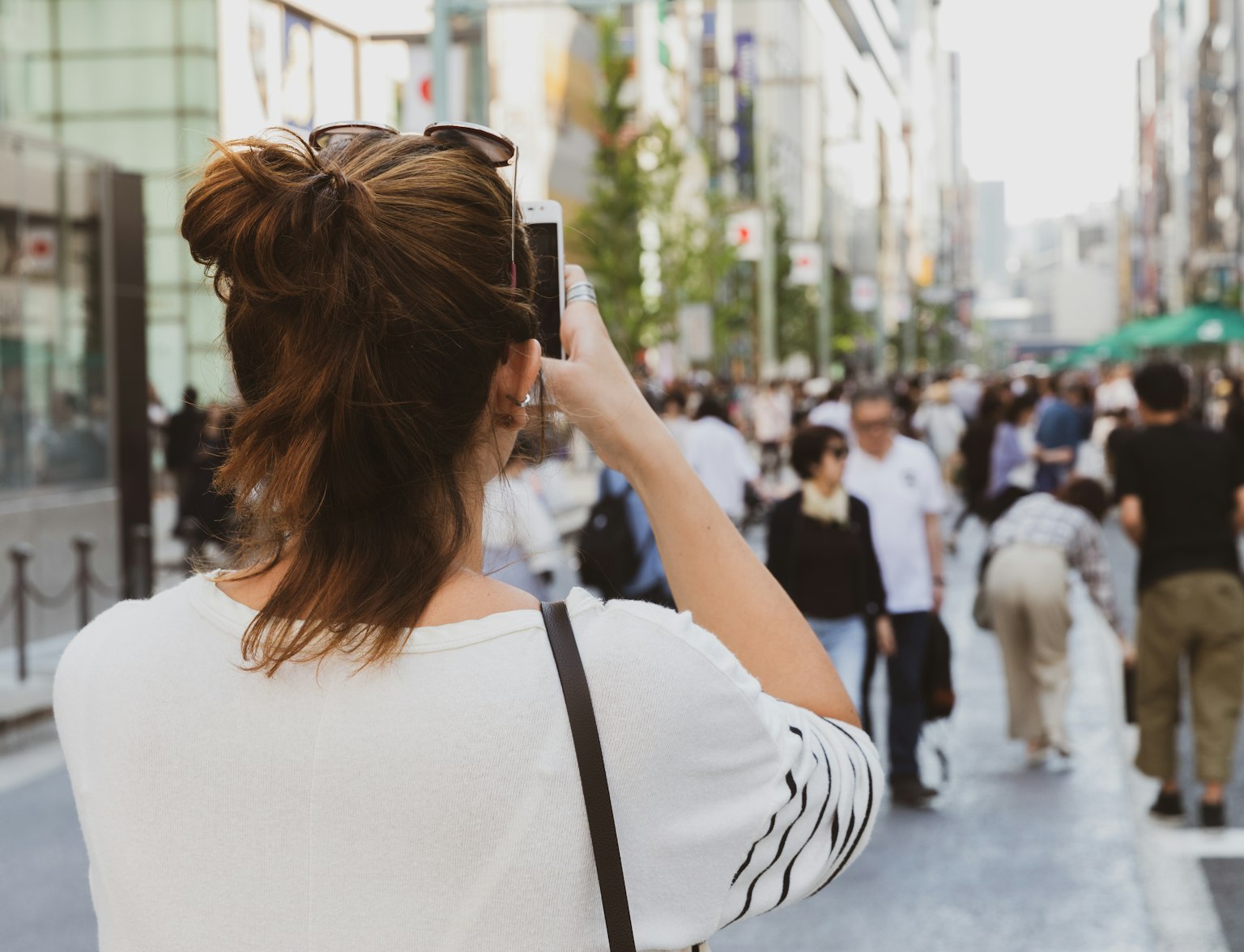
สัมผัสความงามของกินซ่า จุดหมายปลายทางชั้นนำของโตเกียวสำหรับการช็อปปิ้งระดับสูง
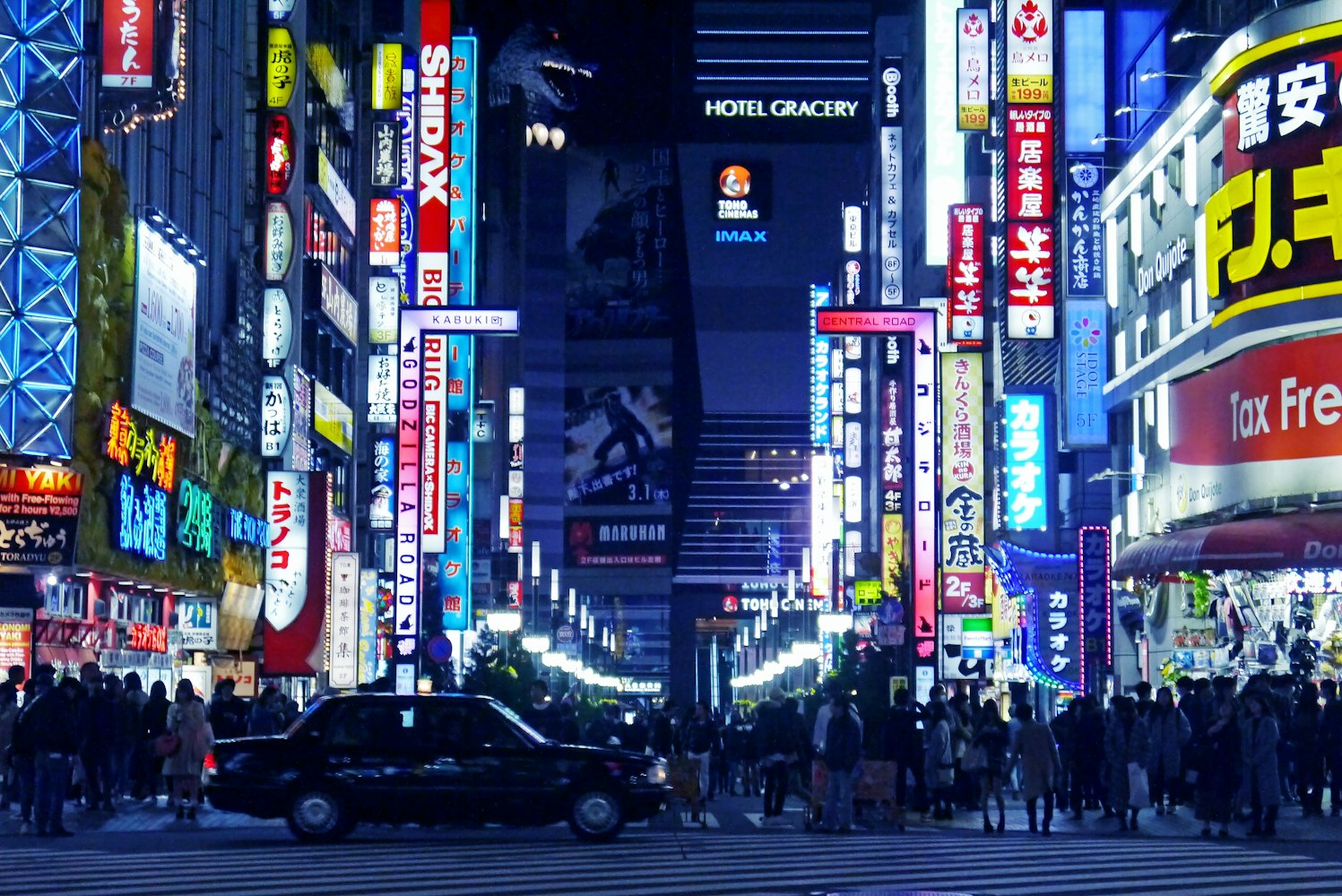
ชินจูกุ มอบประสบการณ์การช็อปปิ้งที่หลากหลาย ด้วยห้างสรรพสินค้าขนาดใหญ่หลากหลายแห่ง อิเซตัน ชินจูกุ เป็นที่รู้จักในด้านชั้นแฟชั่นที่นำเสนอทั้งแบรนด์ระดับนานาชาติและญี่ปุ่น ขณะที่ทาคาชิมายะ ไทม์สแควร์ มักโดดเด่นในด้านการนำเสนอส Goods ที่หลากหลายและอาหารชั้นดี
สำหรับผู้ที่สนใจด้านเทคโนโลยี ร้านยโทบาชิ คาเมระขนาดใหญ่จะเป็นสนามเด็กเล่นของคุณ นำเสนอทุกอย่างอิเล็กทรอนิกส์ตั้งแต่กล้องไปจนถึงเครื่องใช้ในบ้าน
เวลาที่ดีที่สุดในการเยี่ยมชม: เย็นสำหรับความมีชีวิตชีวาของชีวิตยามค่ำคืนและการช็อปปิ้ง
สถานที่น่าสนใจ:
อิเซตัน ชินจูกุ: แฟชั่นและสินค้าหรู
ทาคาชิมายะ ไทม์สแควร์: สินค้าไลฟ์สไตล์และอาหารชั้นดี
ยโทบาชิ คาเมระ: ช่วงของอิเล็กทรอนิกส์ที่กว้างขวาง
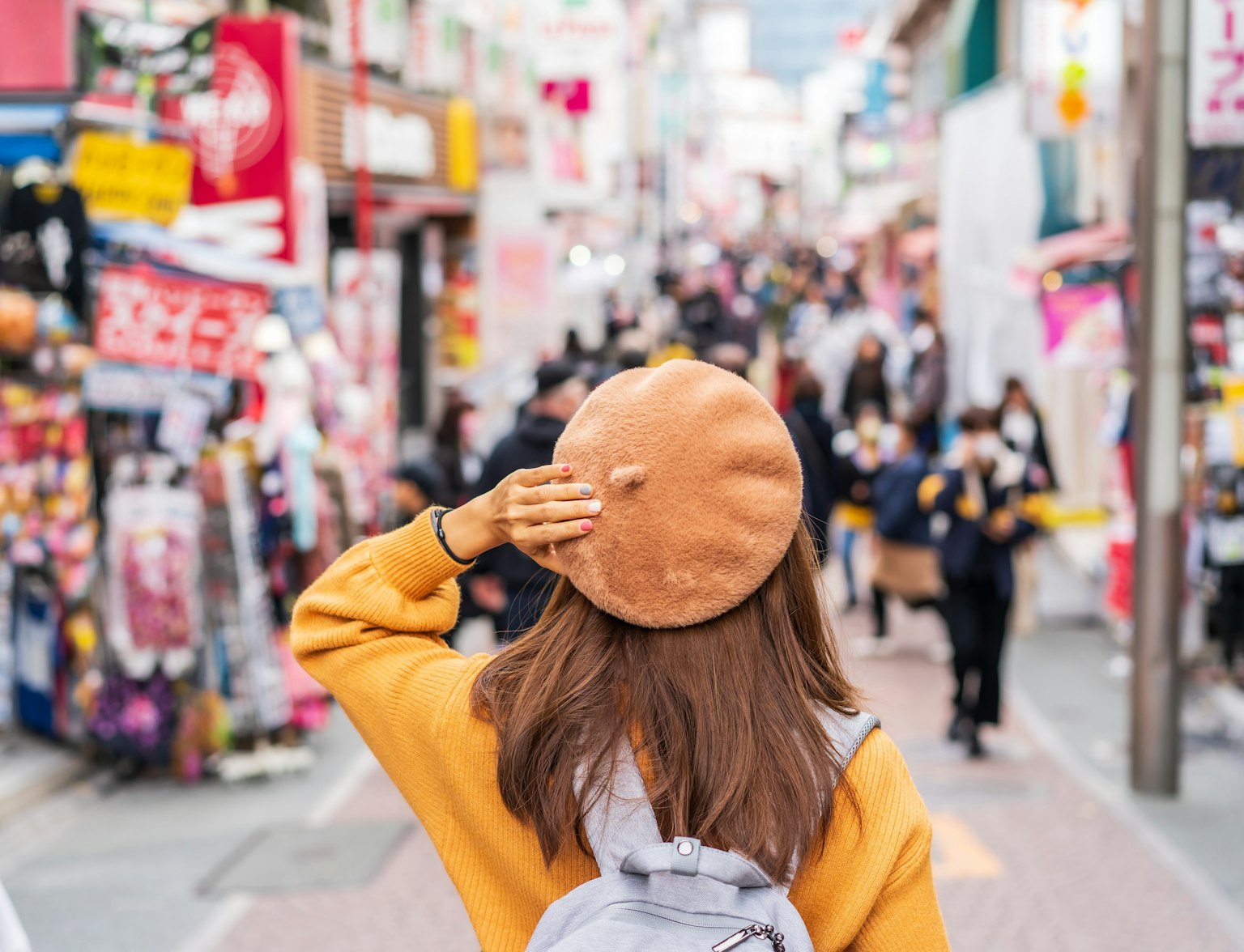
รวมการเยี่ยมชมชินจูกุในแผนการเดินทางที่กำหนดเองของคุณ
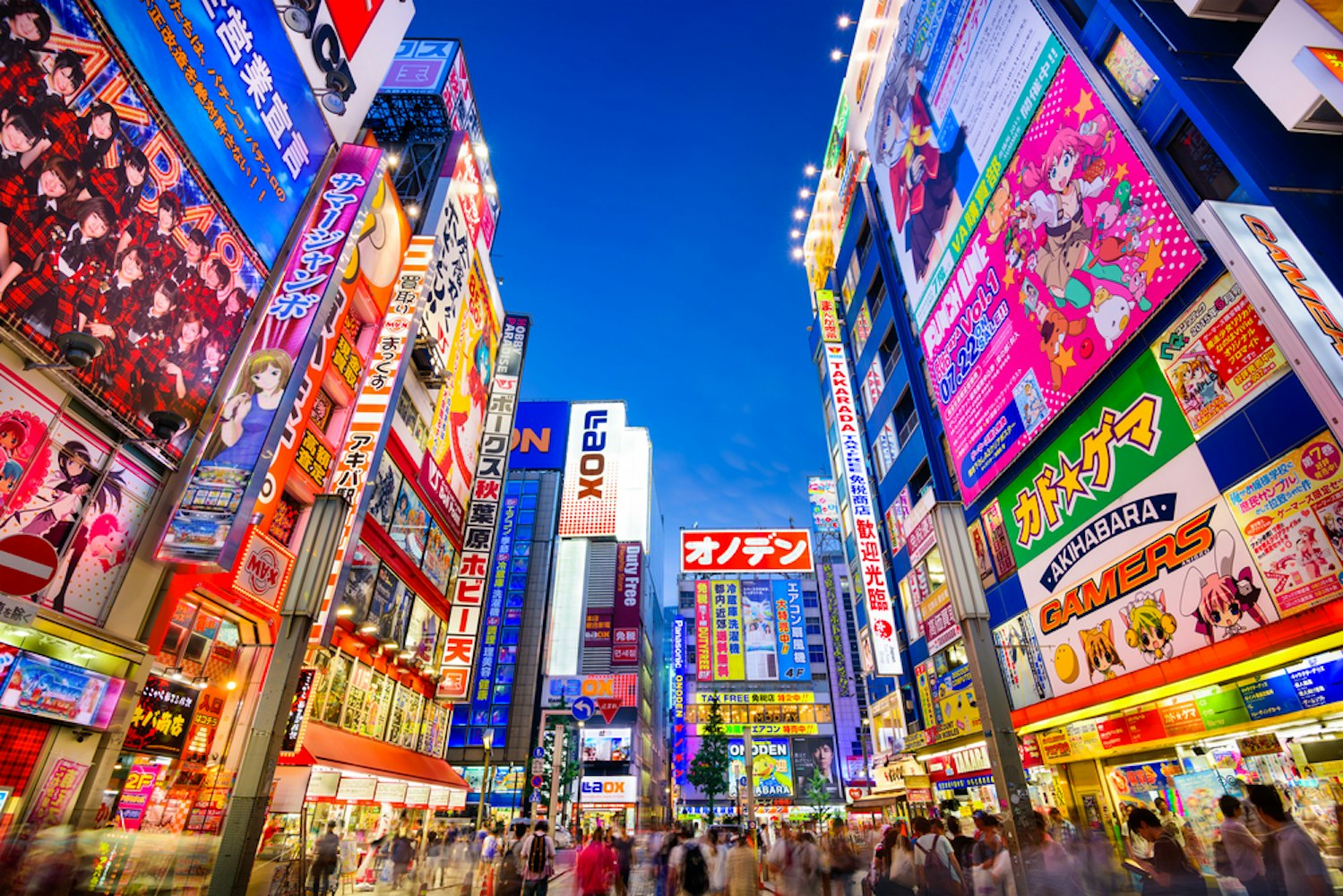
อะกิฮาบาร่า เป็นศูนย์กลางของวัฒนธรรมโอทาคุในโตเกียว เขตนี้เป็นสวรรค์สำหรับแฟนๆ แอนิเมะ มังงะ และวิดีโอเกม โดยมีร้านค้ามากมายที่ขายสินค้าที่เกี่ยวข้อง เยี่ยมชม มันดาราเกะ ร้านขนาดใหญ่ที่เชี่ยวชาญในการขายมังงะและสินค้าที่เกี่ยวข้องมือสอง
สำหรับสินค้าอิเล็กทรอนิกส์ ให้ไปที่ยโทบาชิ คาเมระหรือร้านค้าขนาดเล็กที่กระจายอยู่ทั่วเขตนี้ อะกิฮาบาร่ายังมีคาเฟ่ธีมมากมาย ซึ่งแฟนๆ สามารถดื่มด่ำกับโลกที่ชื่นชอบของพวกเขาได้
เวลาที่ดีที่สุดในการเยี่ยมชม: ช่วงบ่ายปลายและเย็นสำหรับบรรยากาศที่มีชีวิตชีวา
สถานที่น่าสนใจ:
ร้านมังงะและอนิเมะ: คอลเลคชันสินค้าที่หลากหลาย
มันดาราเกะ: มังงะและสินค้าอนิเมะมือสอง
ยโทบาชิ คาเมระ: ร้านอิเล็กทรอนิกส์หลายชั้น
คาเฟ่ธีม: ประสบการณ์การมีส่วนร่วมสำหรับแฟนๆ
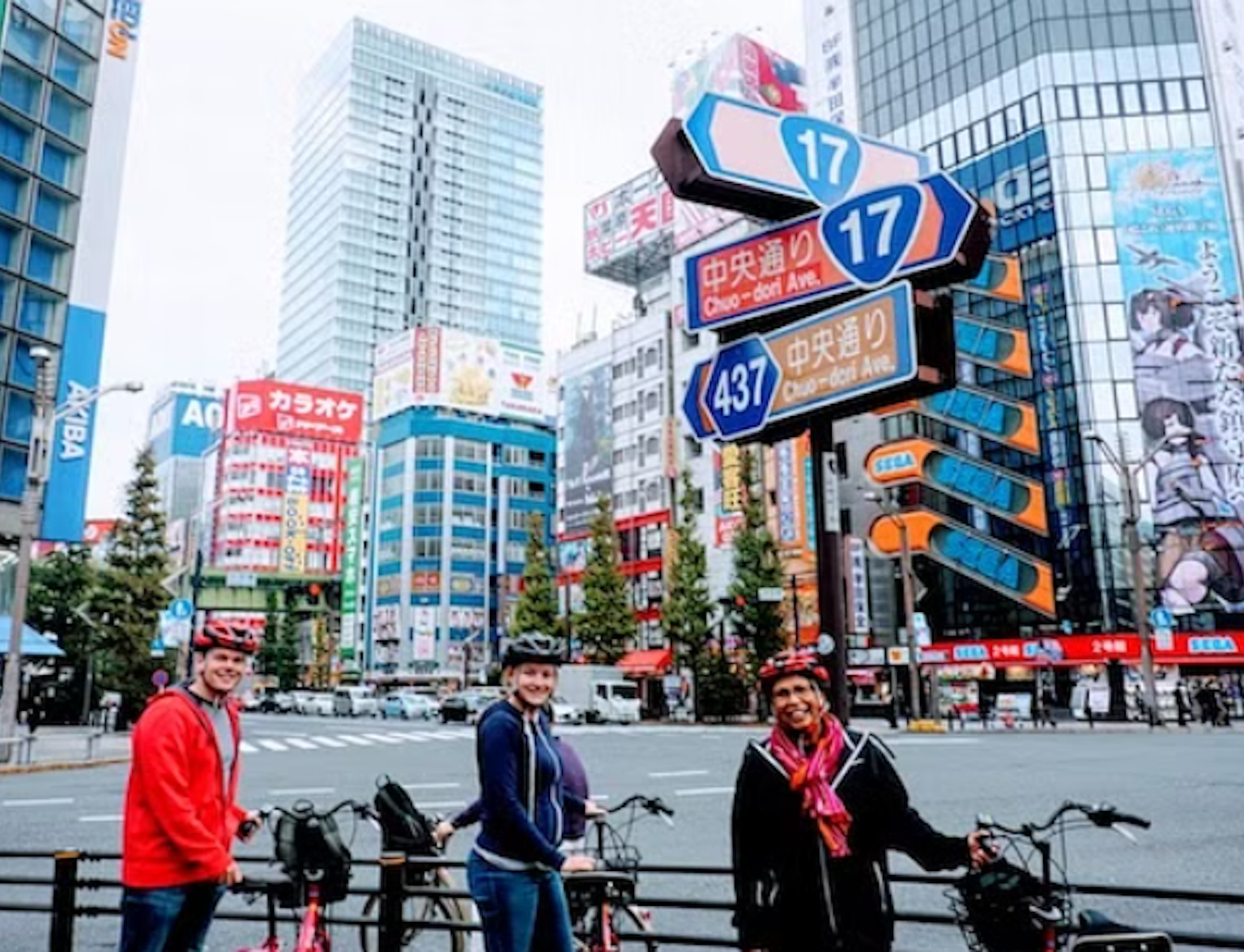
สัมผัสกับดินแดนมหัศจรรย์แห่งไฟฟ้าของอากิฮาบาระกับทัวร์นี้
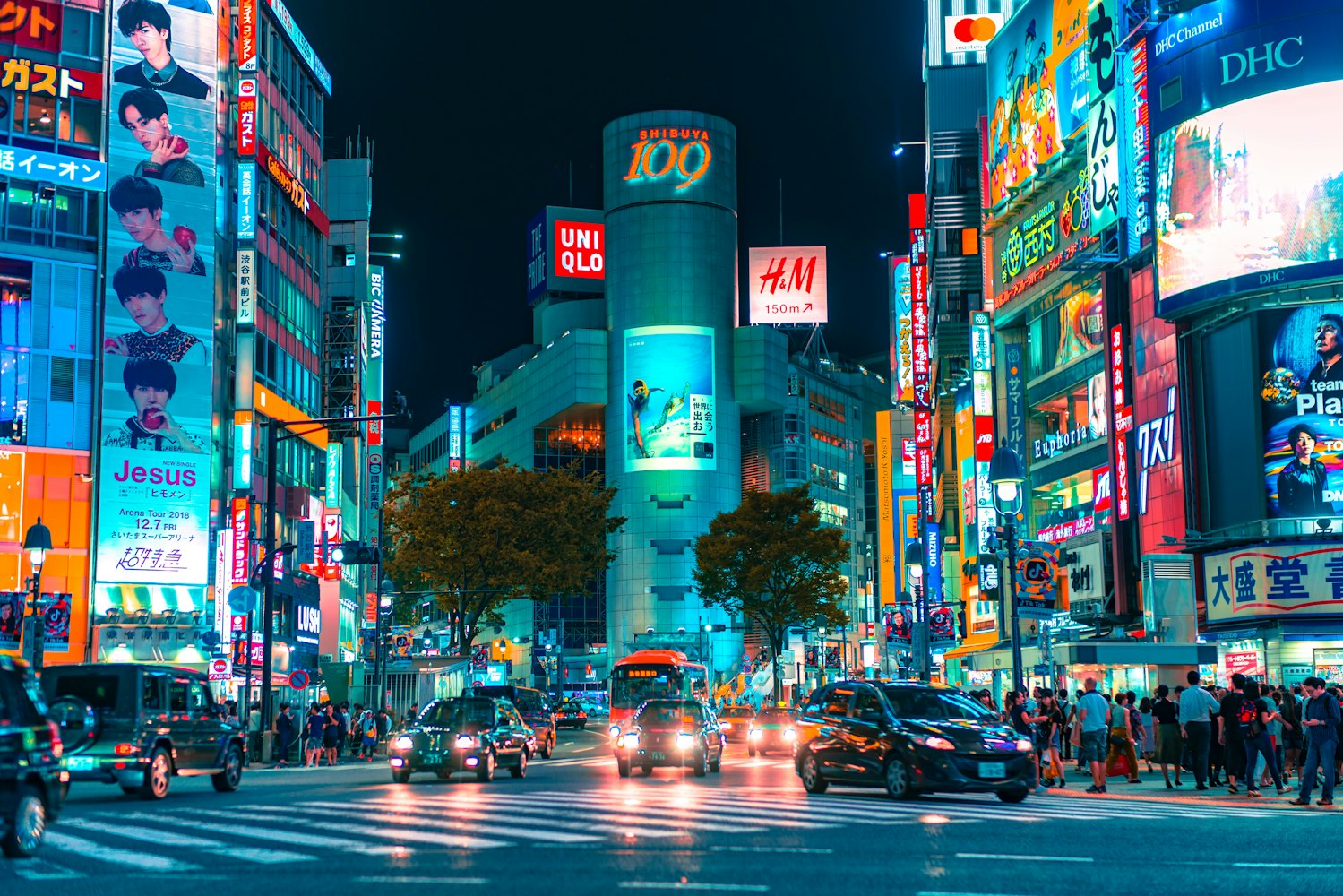
ชิบุยะ เป็นหัวใจของแฟชั่นวัยรุ่นในโตเกียว. เขตที่คึกคักนี้เต็มไปด้วยร้านบูติกสุดทันสมัยและร้านขายแฟชั่นราคาปานกลางที่ตอบสนองต่อเทรนด์สตรีทแวร์ล่าสุด ชิบุยะ 109 คอมเพล็กซ์การช็อปปิ้งหลายชั้น เป็นสถานที่ที่ต้องไปเยือนด้วยร้านค้ามากมายที่ขายตั้งแต่เสื้อผ้าสไตล์สตรีทที่มีเอกลักษณ์ไปจนถึงเสื้อผ้า สุดน่ารัก คุณจะพบแบรนด์ท้องถิ่นอย่าง BEAMS และ Parco ซึ่งเป็นที่ชื่นชอบของแฟชั่นนิสต้าชาวญี่ปุ่นวัยหนุ่มสาว
เวลาที่ดีที่สุดในการเยี่ยมชม: วันทำงานเพื่อลดฝูงชน
สถานที่น่าสนใจ:
ร้านบูติกสุดทันสมัย: เน้นไปที่สตรีทแวร์และแฟชั่นวัยรุ่น
ชิบุยะ 109: คอมเพล็กซ์แฟชั่นที่มีชื่อเสียง
แบรนด์ท้องถิ่น: BEAMS, Parco สำหรับแฟชั่นญี่ปุ่นร่วมสมัย
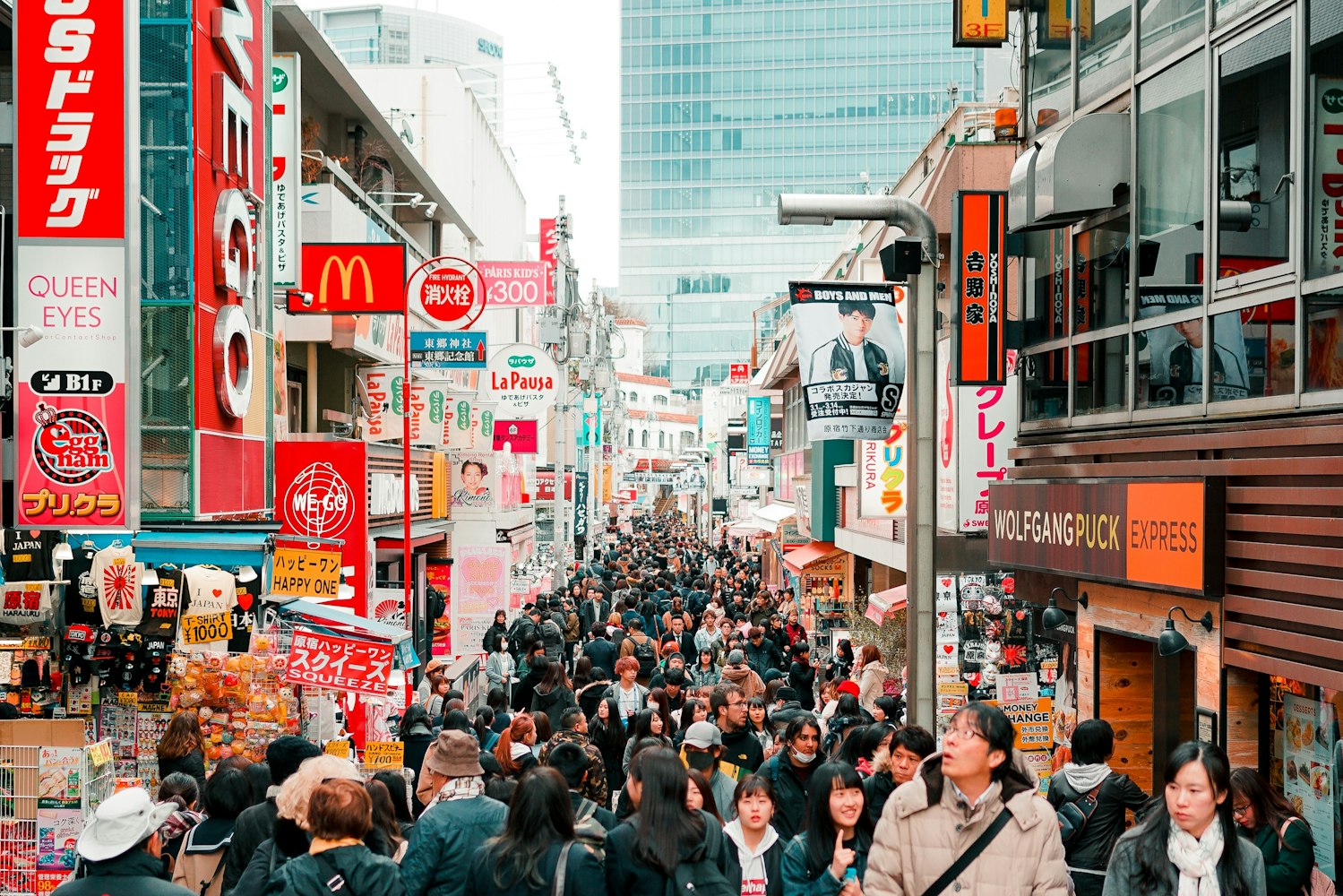
ฮาราจูกุ เป็นที่รู้จักในด้านแฟชั่นที่เป็นเอกลักษณ์และแปลกประหลาด ถนนทาเคชิตะ ถนนช็อปปิ้งหลักของเขตนี้ เป็นศูนย์กลางของสไตล์ถนนที่แปลกใหม่และซับวัฒนธรรมในโตเกียว
ที่นี่คุณสามารถหาร้านค้าที่ขายวิกสีสันสดใส เครื่องประดับแปลก ๆ และชุดคอสเพลย์ ถนนแมว กลับมอบประสบการณ์การช็อปปิ้งที่มีระดับและหรูหราด้วยร้านบูติกชิคและร้านดีไซเนอร์
เวลาที่ดีที่สุดในการเยี่ยมชม: สุดสัปดาห์เพื่อสัมผัสประสบการณ์แฟชั่นบนถนนอย่างเต็มที่
สถานที่น่าสนใจ:
ถนนทาเคชิตะ: ศูนย์กลางของแฟชั่นฮาราจูกุและซับวัฒนธรรม
ร้านค้าที่หลากหลาย: วิกสีสันสดใส คอสเพลย์ อุปกรณ์เสริมที่แตกต่าง
ถนนแมว: ร้านบูติกหรูและแบรนด์ดีไซเนอร์
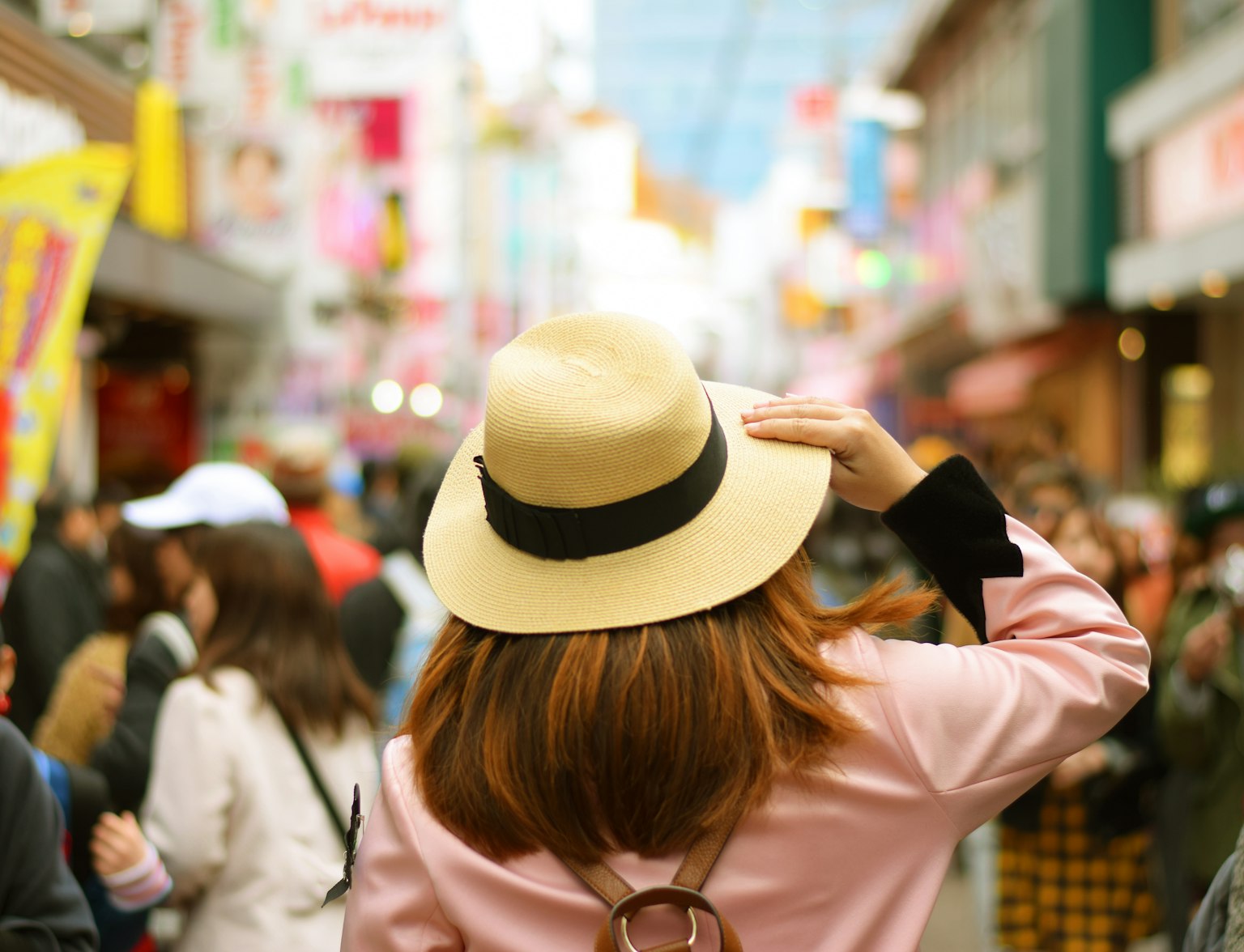
เยี่ยมชมถนนทาเคชิตะในฮาราจุกุศูนย์กลางที่เป็นสัญลักษณ์ของแฟชั่นวัยรุ่นและการแสดงออกทางวัฒนธรรม
โตเกียวมีประสบการณ์การช็อปปิ้งพิเศษที่หลากหลาย เพื่อตอบสนองต่อความสนใจที่หลากหลาย ไม่ว่าคุณกำลังมองหา งานฝีมือญี่ปุ่นแบบดั้งเดิม, อุปกรณ์อิเล็กทรอนิกส์ล่าสุด หรือของสะสมแอนิเมะและมังงะ โตเกียวมีทุกอย่าง
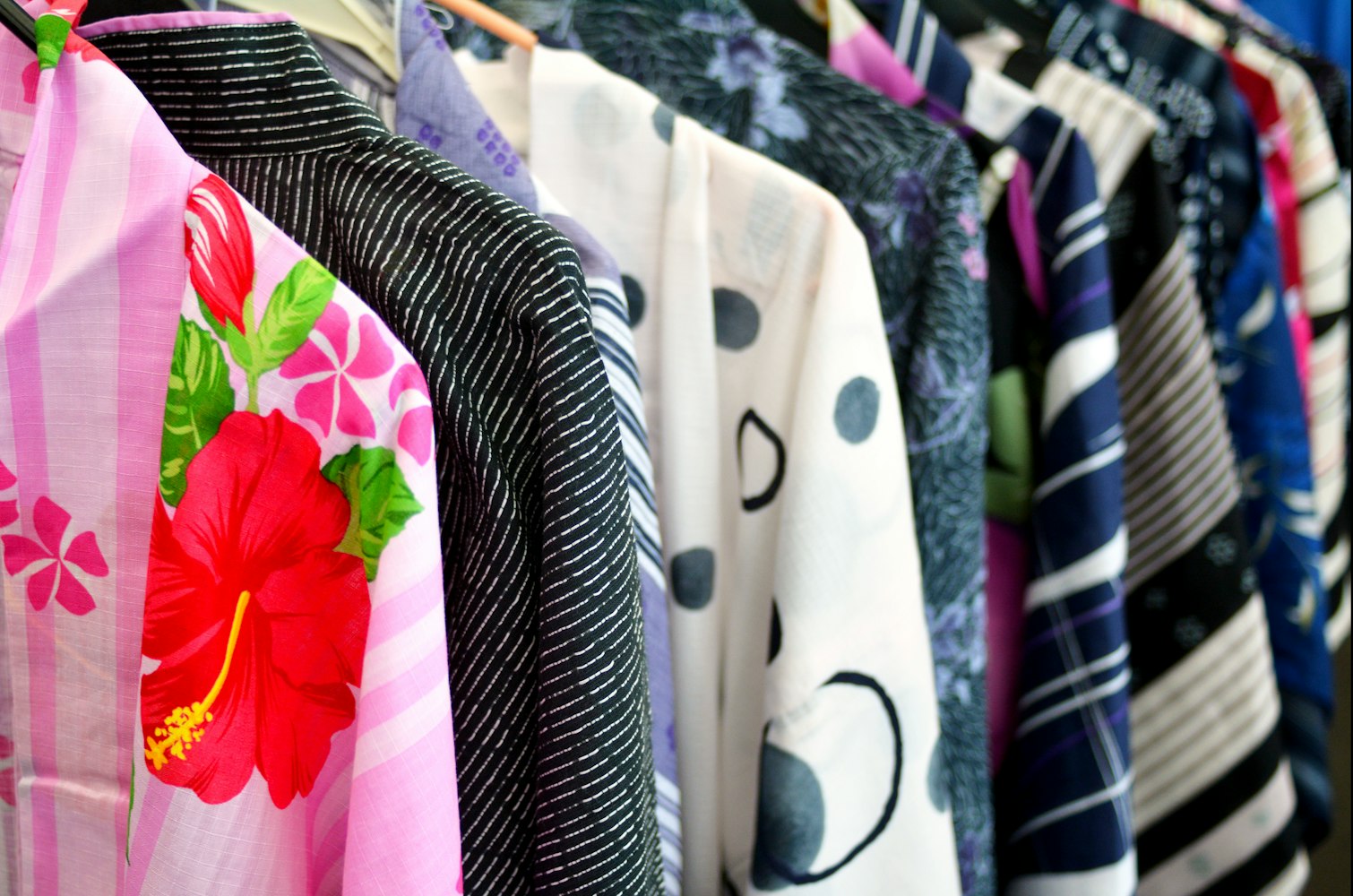
มรดกทางวัฒนธรรมที่ร่ำรวยของญี่ปุ่นสะท้อนผ่านงานฝีมือแบบดั้งเดิมซึ่งเหมาะสำหรับเป็นของที่ระลึกแก่นักท่องเที่ยว แก้วตัดเอโดะคิริโกะซึ่งมีลวดลายที่ซับซ้อนและสีสันที่สดใส เป็นที่นิยมอย่างมาก คุณสามารถหาพวกเขาได้ที่ร้านค้าอย่าง คางามิ คริสตัล ในกินซ่า หรือสุมิด้าน อิโดะคิริโกะ-กัน ในเขตสุมิด้าสำหรับงานฝีมือท้องถิ่น ให้ไปที่ โครงการงานฝีมือดั้งเดิมญี่ปุ่นในอาโอยามะ ซึ่งคุณจะพบกับสินค้ามากมายตั้งแต่เครื่องปั้นดินเผาและผลิตภัณฑ์เคลือบไปจนถึงสิ่งทอและตุ๊กตา สถานที่ยอดเยี่ยมอีกแห่งสำหรับของที่ระลึกแบบดั้งเดิมคือ โอเรียนทัลบาซาร์ในโอโมเตะซันโด โดยมีทุกอย่างตั้งแต่ยูกาตะ (ชุดกิโมโนซัมเมอร์แบบไม่เป็นทางการ) และพัดพับไปจนถึงชุดชาผลิตจากไม้และพิมพ์ไม้การช็อปปิ้งอิเล็กทรอนิกส์ที่ยโทบาชิ คาเมระและอื่น ๆ
โตเกียวเป็นสวรรค์สำหรับผู้รักเทคโนโลยี โดยมีร้านอิเล็กทรอนิกส์จำนวนมากที่เต็มไปด้วยแกดเจ็ตล่าสุด ยโทบาชิ คาเมระ ร้านอิเล็กทรอนิกส์ขนาดใหญ่ที่มีสาขาอยู่ในพื้นที่ต่าง ๆ เช่น อะกิฮาบาร่าและชินจูกุ มีสินค้าขนาดใหญ่ โดยมีให้เลือกอย่างมากมาย ตั้งแต่อุปกรณ์ถ่ายภาพและแล็ปท็อปไปจนถึงเครื่องใช้ในบ้านและคอนโซลเกม
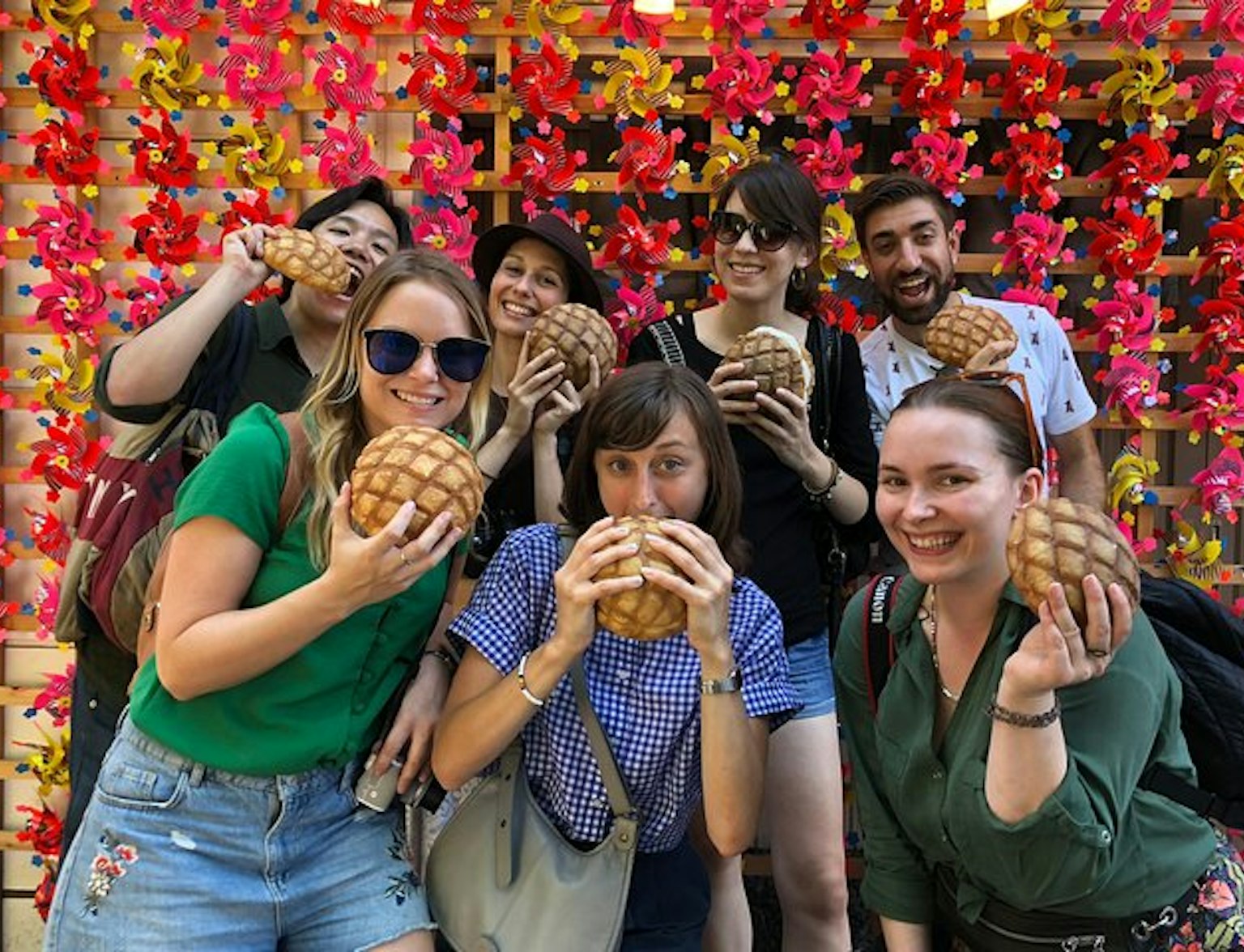
สำรวจถนนช็อปปิ้งนากามิเสะด้วยทัวร์นี้
การช็อปปิ้งแอนิเมะและมังงะที่มัณฑาระเกะ คอมเพล็กซ์
สำหรับผู้ที่ชื่นชอบแอนิเมะและมังงะ ไม่มีที่ไหนที่ดีกว่า
. อาคารแปดชั้นแห่งนี้เต็มไปด้วยมังงะมือสอง แผ่นดีวีดีอนิเมะ ชุดคอสเพลย์ ไพ่สะสม รูปปั้น และอื่น ๆ อีกมากมายเตรียมใช้เวลานานในการเยี่ยมชมที่นี่ เพราะร้านนี้กว้างขวางและเต็มไปด้วยสินค้า นอกจากนี้ยังมีการจัดระเบียบตามธีมในแต่ละชั้น ดังนั้นอย่าลืมหยิบแผนที่ร้านที่ทางเข้า หากคุณกำลังมองหาสินค้าหายากหรือของสะสม มันดาราเกะ คอมเพล็กซ์เป็นสถานที่ที่ต้องไปเยือนการนำทางในฉากการช็อปปิ้งของโตเกียว
เขตช็อปปิ้งของโตเกียวเป็นสถานที่ที่น่าสำรวจ แต่สามารถรู้สึกท่วมท้นได้ เนื่องจากมีขนาดและจำนวนร้านค้ามากมาย นี่คือเคล็ดลับบางประการเพื่อช่วยในการนำทางในฉากการช็อปปิ้งของโตเกียว
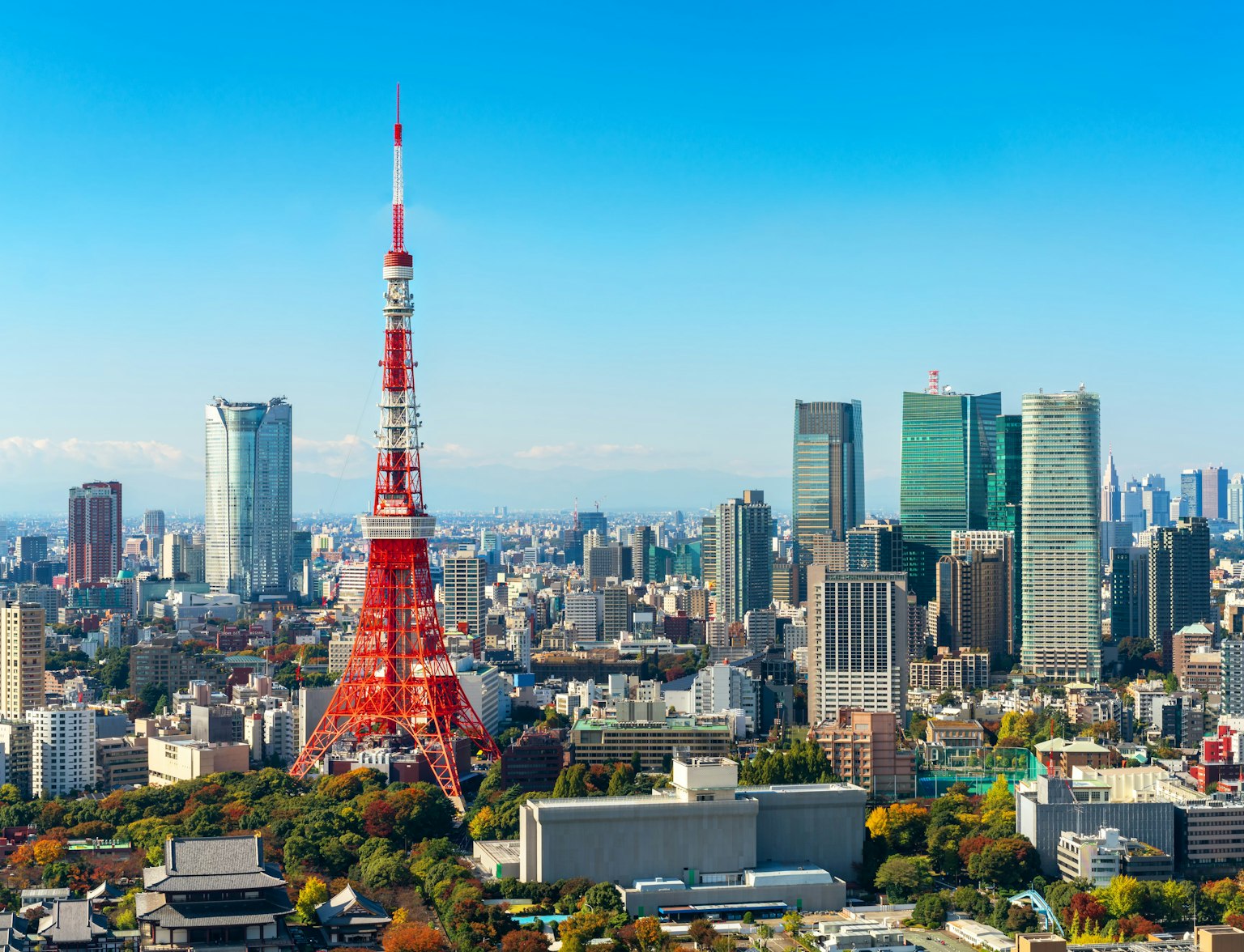
เยี่ยมชมศูนย์เหล่านี้ได้อย่างง่ายดายด้วยรถยนต์ส่วนตัว
ระบบรถไฟฟ้าใต้ดินที่ครอบคลุมและมีประสิทธิภาพของโตเกียวเป็นกุญแจสำคัญในการเปิดเผยความมหัศจรรย์ในการช็อปปิ้งของเมือง:
รถไฟฟ้าโตเกียวและสายรถไฟใต้ดินโตเกียวเชื่อมต่อเขตช็อปปิ้งสำคัญทั้งหมดและค่อนข้างง่ายต่อการนำทาง โดยเฉพาะอย่างยิ่งมีป้ายบอกทางภาษาอังกฤษอยู่ สถานีสำคัญ ได้แก่ สถานีกินซ่าสำหรับแฟชั่นสุดหรู สถานีอะกิฮาบาร่าสำหรับสินค้าอิเล็กทรอนิกส์และมังงะ และสถานีโอโมเตะซันโดสำหรับแบรนด์หรูและห้างสรรพสินค้าหรูหรา
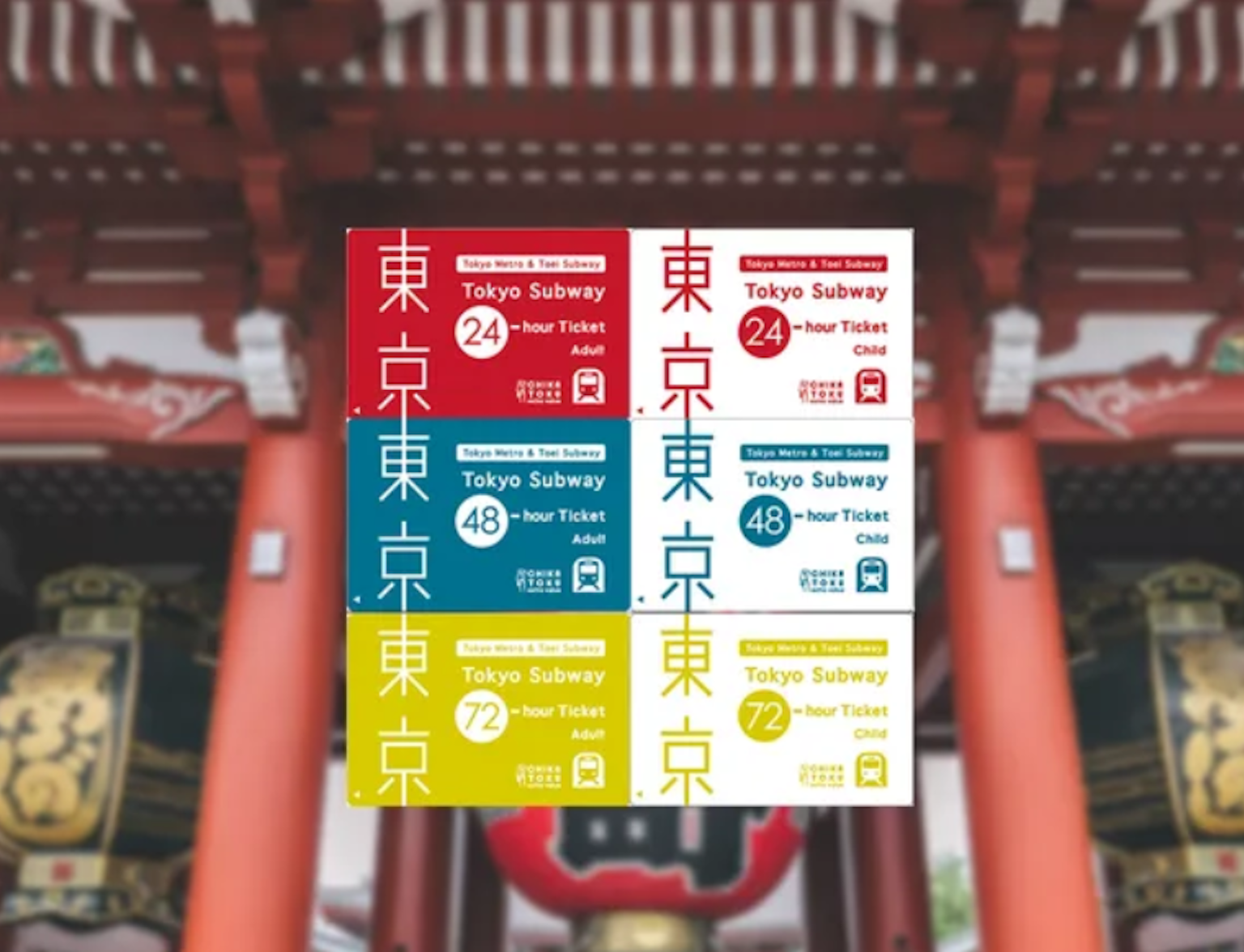
เข้าสู่จังหวะของโตเกียวด้วยบัตรรถไฟใต้ดินที่สุดยอดของเรา
, และร้านรอบสถานีโตเกียว มีขนาดกะทัดรัดและเหมาะสำหรับการเดิน ทำให้คุณสามารถสำรวจร้านค้าหลายแห่งได้ในระยะเวลาอันสั้น โดยไม่จำเป็นต้องออกจากคอมเพล็กซ์การช็อปปิ้งความสะดวกในการเข้าถึง:โตเกียวพยายามปรับปรุงการเข้าถึงอย่างต่อเนื่อง ร้านค้าส่วนใหญ่ ห้างสรรพสินค้า และพื้นที่รอบสถานีรถไฟมีความสะดวกในการเข้าถึงสำหรับรถเข็นผู้พิการและมีลิฟต์ อย่างไรก็ตาม บูติกขนาดเล็กหรืออาคารที่เก่ากว่าอาจไม่มีสิ่งอำนวยความสะดวกเหล่านี้ ดังนั้นวางแผนล่วงหน้าหากจำเป็นวิธีการชำระเงินและการช็อปปิ้งปลอดภาษีในโตเกียว ร้านค้าส่วนใหญ่รับชำระเงินทั้งเงินสดและบัตรเครดิต อย่างไรก็ตาม ร้านค้าขนาดเล็ก โดยเฉพาะอย่างยิ่งในพื้นที่ที่ไม่มีนักท่องเที่ยว อาจรับเฉพาะเงินสดเท่านั้น ดังนั้นควรพกเงินสดไว้บ้างเผื่อไว้
สำหรับนักท่องเที่ยว การช็อปปิ้งปลอดภาษีมีให้บริการที่ร้านค้ามากมาย หากคุณเห็นป้าย "ปลอดภาษี" ที่ร้าน นั่นหมายความว่าคุณสามารถได้รับการยกเว้นจากภาษีการบริโภค 8% หากคุณใช้จ่ายเกินจำนวนหนึ่ง (ปกติคือ 5000 เยน) คุณต้องแสดงพาสปอร์ตในขณะซื้อ และสินค้าเหล่านั้นต้องถูกนำออกจากญี่ปุ่นภายใน 6 เดือนการค้นพบเพชรเม็ดงามในการช็อปปิ้ง
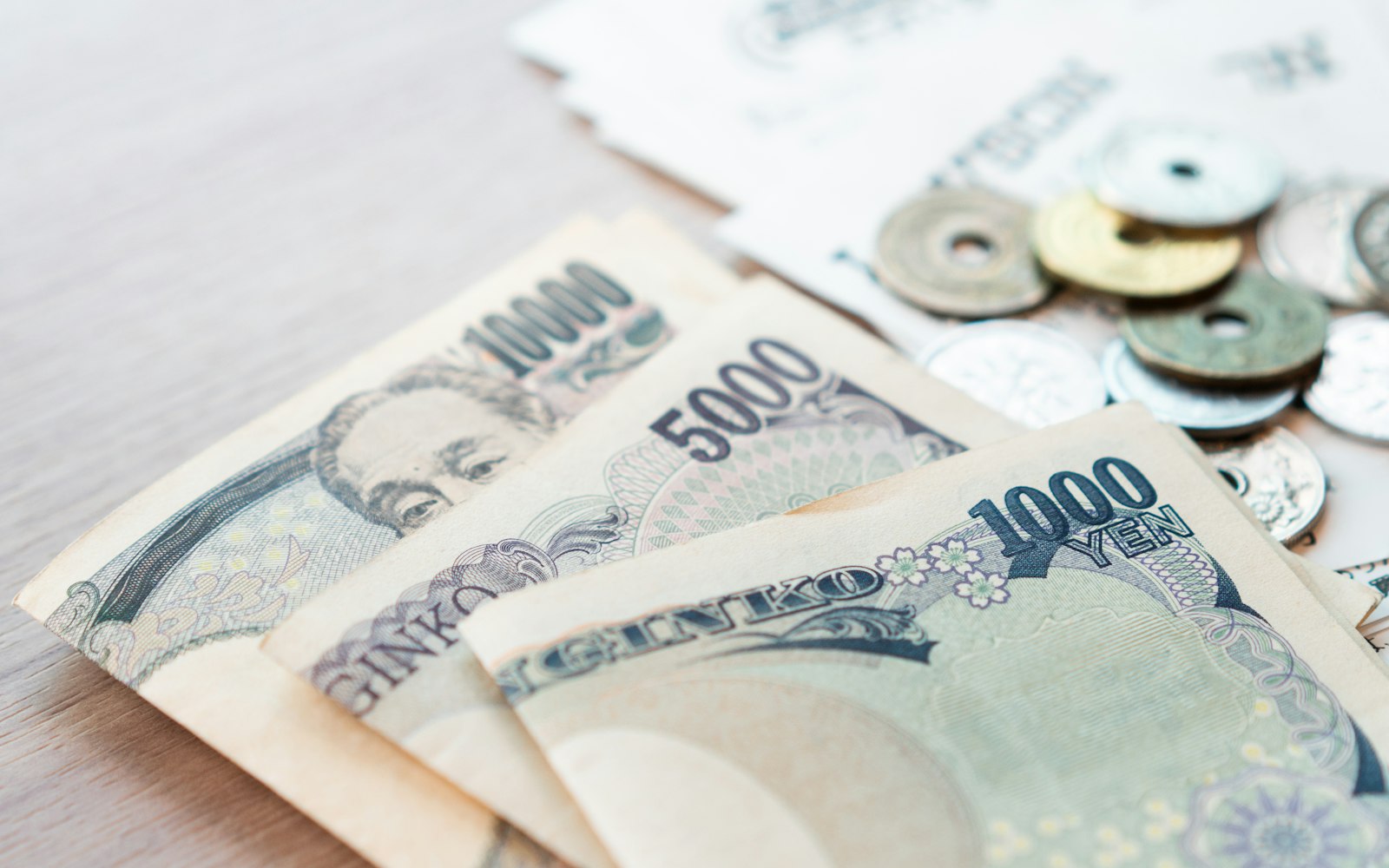
ถนนนากามิเสะและถนนคัปปาบาชิ
ถนนนากามิเสะ ที่นำไปสู่วัดเซนโซจิ อันมีชื่อเสียงในอาซากุสะ เป็นถนนการช็อปปิ้งที่คึกคัก เต็มไปด้วยร้านค้าเล็กๆ ที่นี่คุณสามารถหาขนมแบบดั้งเดิม ขนมหวาน และของที่ระลึก มันคือ
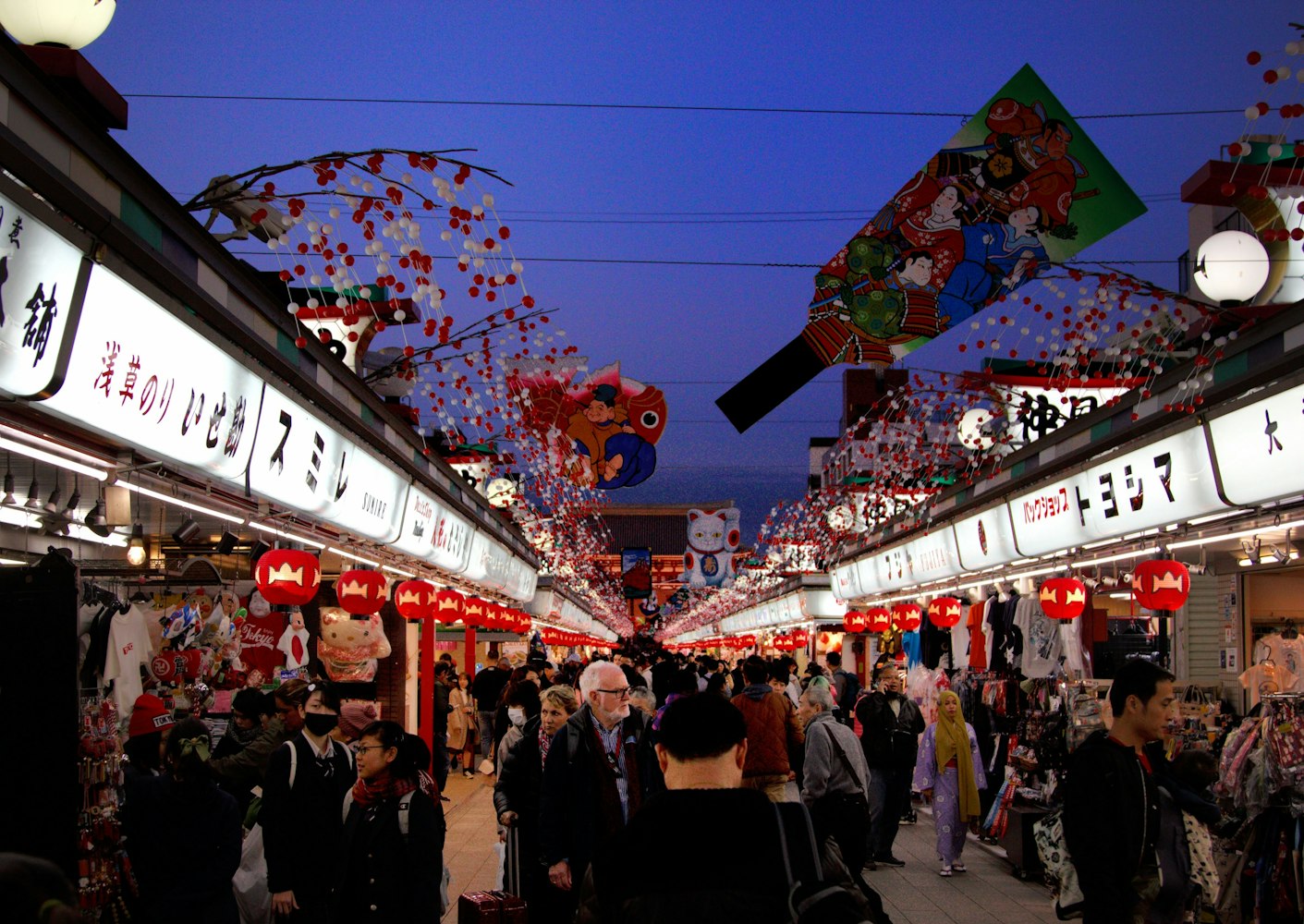
ตลาดของเก่าที่ระยะหลัง และตรอกซอกซอยตลาดของเก่าในโตเกียวเสนอประสบการณ์การช็อปปิ้งที่แตกต่างโดยสิ้นเชิง สถานที่อย่างตลาดนัดที่สนามแข่งโอฮิและตลาดนัดโยโยกิ เป็นสวรรค์สำหรับนักช็อปผู้ชื่นชอบการต่อรอง ที่นี่คุณจะพบกับสินค้าที่น่าสนใจมากมาย ตั้งแต่อุปกรณ์ทุกชนิด เสื้อผ้ามือสองและของเก่า ไปจนถึงงานฝีมือที่ผลิตในท้องถิ่นและของผลิตในท้องถิ่นการช็อปปิ้งในตรอกซอกซอยในโตเกียวยังนำไปสู่การค้นพบที่ไม่เหมือนใคร เขตอย่างชิโมคิตาเสะและโคเอนจิเป็นที่รู้จักในด้านร้านขายของเก่าและบูติกอิสระ พื้นที่เหล่านี้มีทุกอย่างตั้งแต่เสื้อผ้ามือสองไปจนถึงแผ่นเสียง ทำให้เหมาะสำหรับผู้ที่มองหาสิ่งที่ไม่ธรรมดา
มารยาทในการช็อปปิ้งในโตเกียว
การจัดการสินค้าที่ประณีต:
จงระวังเมื่อจัดการสินค้าช Especially ในเสื้อผ้า หากคุณตัดสินใจลองเสื้อผ้า ให้หลีกเลี่ยงการใช้เครื่องสำอางหรือกลิ่นน้ำหอมเพื่อป้องกันการเปรอะเปื้อนสินค้า
เมื่อชำระเงิน ถือว่าปกติที่จะวางเงินของคุณลงบนถาดเล็ก ๆ ที่ให้ไว้ที่เคาน์เตอร์แคชเชียร์ แทนที่จะส่งมันโดยตรงให้กับแคชเชียร์
อุปสรรคทางภาษา: แม้ว่าลูกค้าส่วนใหญ่ในโตเกียวจะพูดอังกฤษได้บ้าง โดยเฉพาะในพื้นที่ท่องเที่ยว การสื่อสารก็อาจเป็นเรื่องท้าทาย คำศัพท์ญี่ปุ่นพื้นฐานบางคำสามารถมีความหมายได้มาก
การสรุปประสบการณ์การช็อปปิ้งในโตเกียวของคุณเราได้สำรวจถนนที่คึกคักและเขตช็อปปิ้งที่หลากหลายของโตเกียว ดื่มด่ำในโลกที่ละลายระหว่างประเพณีกับความทันสมัย คู่มือนี้ได้ทำหน้าที่เป็นเข็มทิศของคุณ ชี้ให้คุณเห็นสถานที่ค้าปลีกที่ต้องไปเยือนบางแห่งของเมือง
แต่โปรดทราบว่า
.
ดังนั้นให้ความรู้สึกของคุณได้เป็นแนวทาง และคุณอาจจะสะดุดเพชรเม็ดงาม หากแต่ละการซื้อของคุณจะมากกว่าสิ่งของ มันคือชิ้นส่วนหนึ่งในเรื่องราวของคุณเกี่ยวกับโตเกียว Tokyo's charm extends beyond its popular stores. So, let your intuition guide you, and you may just stumble upon a hidden gem. Each purchase you make will be more than just an item; it's a piece of your Tokyo story.



